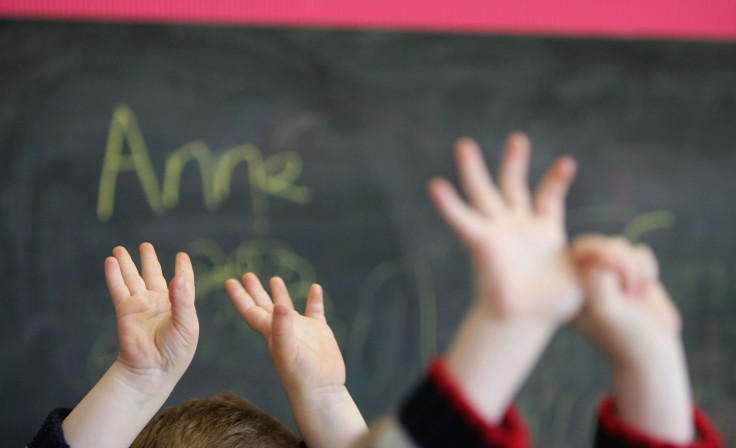Early Childhood Behavior Problems May Hurt Boys More Than Girls Once They Get To High School

All children misbehave sometimes. These behavior problems can be temporary, due to events that might bring on stress, such as the birth of a sibling, a divorce, or a death in the family, according to the National Institute of Health. Others are persistent, and regardless of how long-lived they are, behavior issues can interfere with schoolwork and lead to academic problems. However, new research published in the Sociology of Education found that behavioral problems in early childhood have a larger negative effect on school completion rates for boys than girls.
Specifically, researchers found that among boys and girls who struggled to pay attention, regulate emotions, and delay gratification at 4 or 5 years old, boys were more likely to go on to complete fewer years of schooling.
"I found that boys were less likely to learn and more likely to be held back in school," researcher and sociologist Jayanti Owens said in a statement.
It’s been well-documented that girls outperform boys in school. In fact, according to the U.S. Census Bureau, teen boys comprised 50 percent of students enrolled in ninth grade, but they received 48 percent of high school diplomas in 2014. They also represented 43 percent of college enrollees in 2014, and were awarded 40 percent of bachelor's degrees. The study attempts to explain the substantial gender gap in educational attainment in the U.S.
Researchers at Brown University reviewed data from a national sample of children born to women in their early to mid-20s in the 1980s who were followed into adulthood to look at how systematic responses to children's behavior at school vary by gender. They also wanted to determine their overall educational attainment, which is closely linked to success in adulthood. The data showed that the school’s response to boy’s behavior plays a great role in shaping their educational outcomes years later.
"That boys typically have worse behaviors when they start school may help explain why their behaviors are more detrimental to achievement — stereotypes about boys' bad behavior may cause educators to take more and harsher actions against male students,” Owens explained. “This process may lead to a compounding and cyclical relationship between boys' behavior problems and lower achievement."
In other words, boys and girls have different experiences at school. This is partly due to the fact that boys tend to have higher levels of behavior problems and receive harsher punishment from teachers and administrators. According to the study, boys said they had significantly greater exposure to negative school environments and peer pressure than do girls. High school male students also reported higher rates of grade retention and lower educational expectations. Owens said the findings demonstrate that many school environments are not conducive to boys’ success.
While the current study partly goes to show how the traditional school environment is stacked against boys, past research has found that girls have a better attitude toward learning than boys.
"You can think of 'approaches to learning' as a rough measure of what a child's attitude toward school is: It includes six items that rate the child's attentiveness, task persistence, eagerness to learn, learning independence, flexibility and organization. I think that anybody who's a parent of boys and girls can tell you that girls are more of all of that," said Christopher Cornwell, researcher of the 2013 study, Medical Daily previously reported.
Owens hopes the findings from the current study offer hope for narrowing the education gap by increasing boys’ learning and educational attainment. She said supportive home and school environments that “proactively encourage the early development of self-regulation and social skills” are necessary for that to happen. In fact, a 2015 study has found that eating breakfast can boost children’s educational attainment.
Source: Owens J, et al. Early Childhood Behavior Problems and the Gender Gap in Educational Attainment in the United States. Sociology of Education. 2016.



























